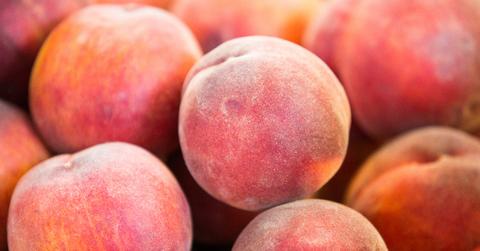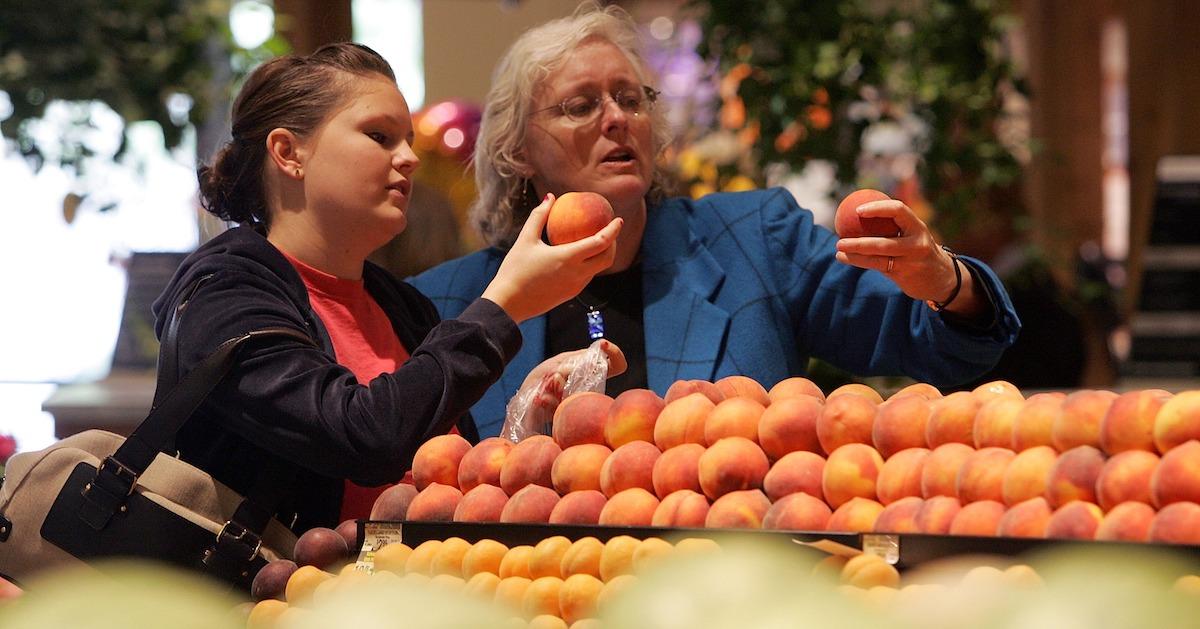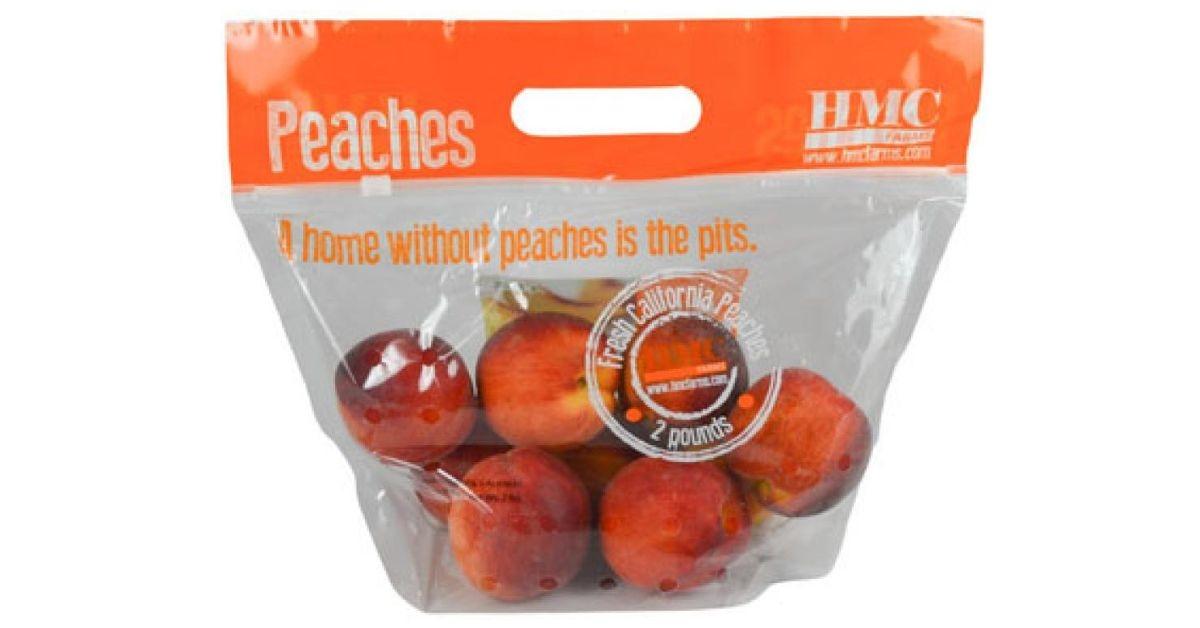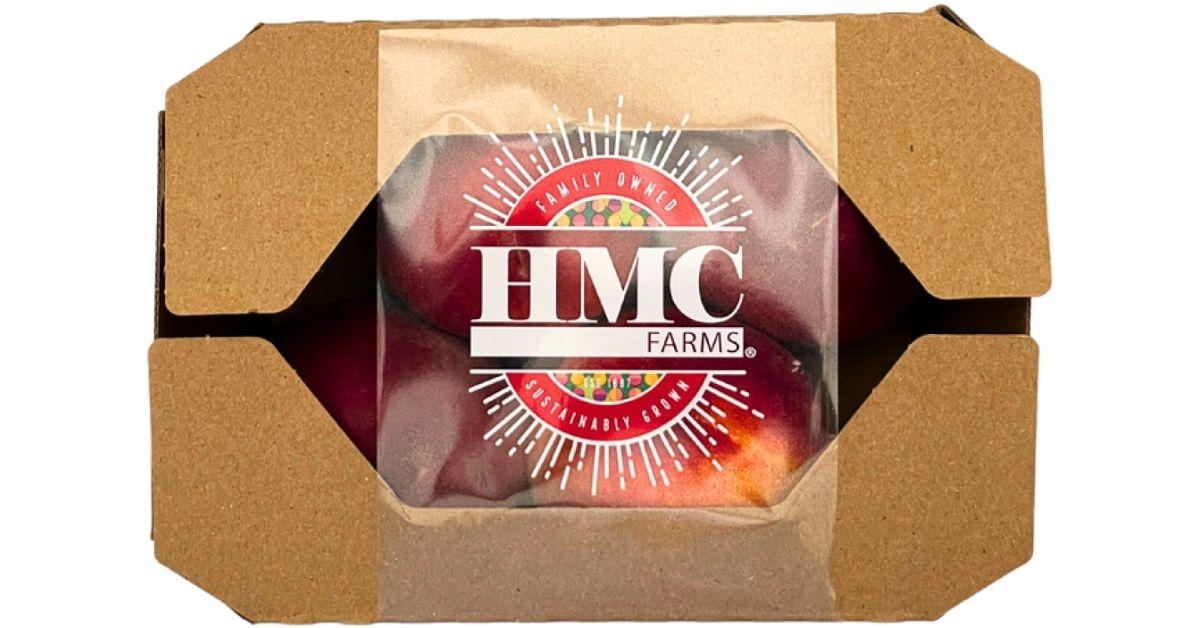After a Person Dies, CDC Issues Major Fruit Recall Due to Listeria Contamination
Published Nov. 21 2023, 1:51 p.m. ET

The Gist:
- Peaches, plums, and nectarines are being recalled in November 2023 due to a listeria outbreak.
- The recalled fruit was sold in stores between May 1 and Nov. 15 in 2022, and between May 1 and Nov. 15 in 2023.
- One person has died, and 10 people were hospitalized due to the listeria outbreak.
At least one person has died, and 10 have been hospitalized due to a listeria outbreak linked to fruit. The Centers for Disease Control and Prevention (CDC) issued a recall on Nov. 20, 2023, for peaches, nectarines, and plums distributed by HMC Farms.
Here are the details on the CDC’s fruit recall for listeria and what you need to do if you have the recalled fruit at home. The potentially contaminated fruit is no longer available in retail stores, per the HMC Farms.
Fruit including peaches, nectarines, and plums, are being recalled for listeria in November 2023.
According to the CDC website, the recalled peaches, nectarines, and plums were sold in stores across the country between May 1 and Nov. 15 in 2022, and between the same dates in 2023. The fruit was sold both individually and in 2-pound bags labeled either “HMC Farms” or “Signature Farms.” Organic fruit is not part of the recall.
The fruit that was sold individually will have a PLU sticker with “USA-E-U” and the following corresponding numbers:
Yellow peach: 4044 or 4038
White peach: 4401
Yellow nectarine: 4036 or 4378
White nectarine: 3035
Red plum: 4042
Black plum: 4040.

The CDC recall comes just days after a voluntary recall was issued by the fruit company HMC Group Marketing, Inc. As of Nov. 21, 2023, the affected states for the recall include California, Colorado, Florida, Illinois, Kansas, Michigan, and Ohio.
Here’s what to do if you have recalled fruit at home:
The CDC urges people to check their refrigerators and freezers for any of the recalled fruit. If you have some, you should throw it out and thoroughly clean your refrigerator and any surfaces or containers the contaminated fruit may have come in contact with.
“Listeria can survive in the refrigerator and can easily spread to other foods and surfaces,” the CDC stated in its recall.
Listeria is a bacteria that can contaminate food, make people who eat the food sick. About 1,600 people get sick from listeria each year, and around 260 people die from it, per the CDC. Pregnant people, newborns, adults 65 and older, and people with weakened immune systems are at the highest risk for serious illness from listeria.
Per the CDC, symptoms of listeria illness can appear anywhere from two to 10 weeks after eating contaminated food. According to the CDC, signs can include fatigue, fever, muscle aches, headache, stiff neck, confusion, and seizures.
If you have questions regarding the fruit recall, contact the consumer information desk at HMC Group Marketing, Inc. at (844) 483-3867 Monday through Friday between 8 a.m. and 8 p.m. EST.

